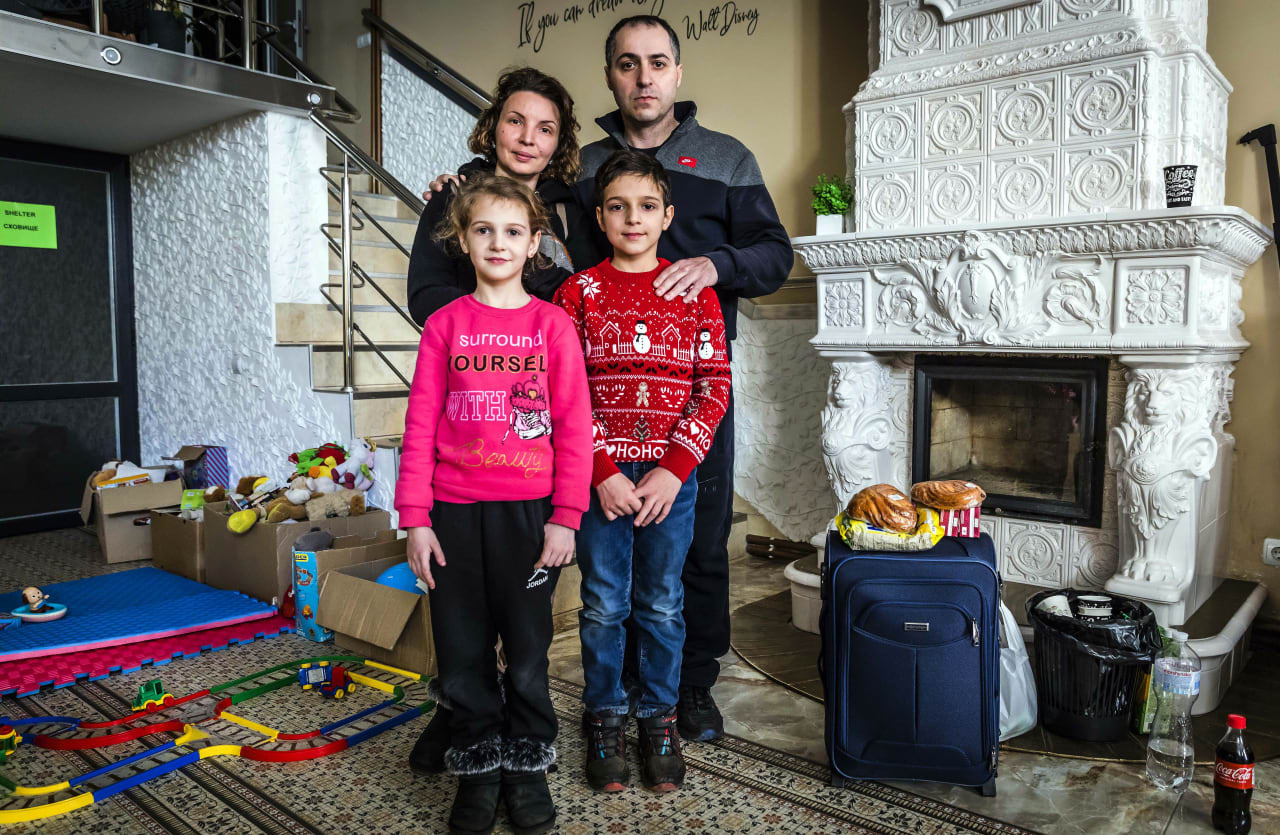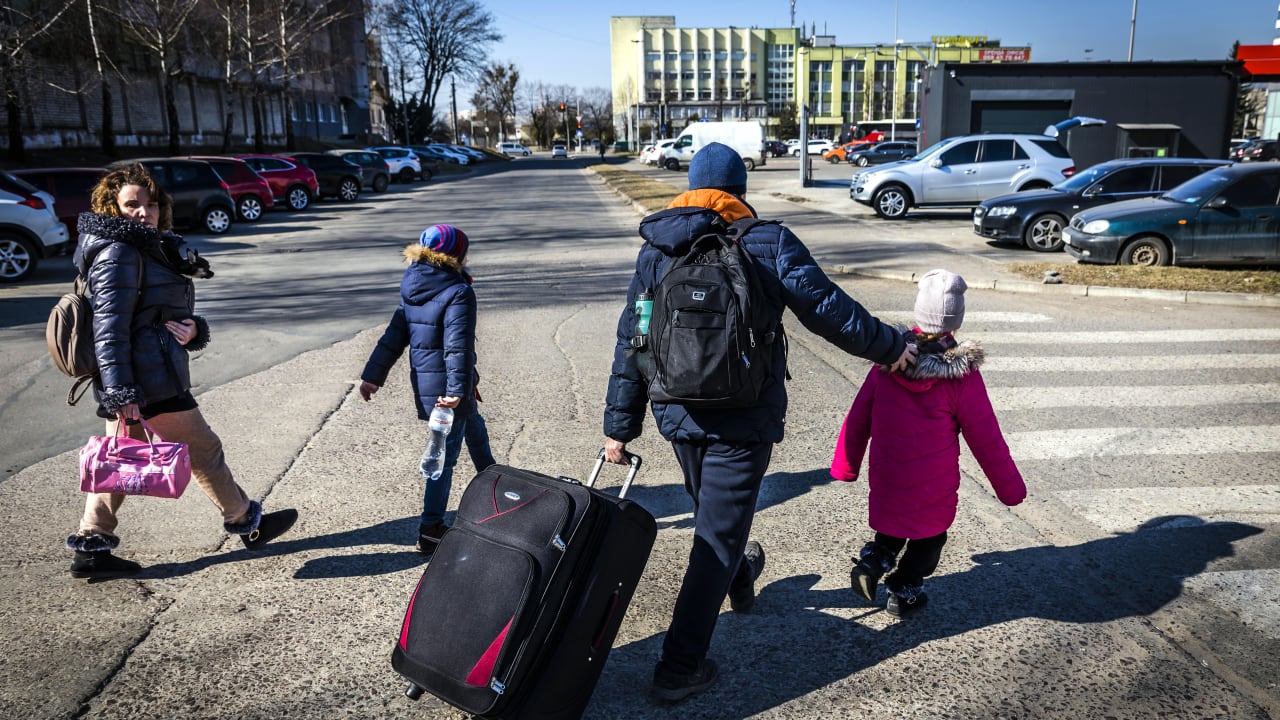Notifications

It is the darkest place in Ukraine: the Mariupol Cauldron!
The port city has been cut off from the outside world for weeks. Russian troops have surrounded the city, bombing residential areas and even refugee treks.
But they managed to escape: Ramas (44) and Maria (37), with their children Rostislav (10) and Valeria (8), made their way to Lemberg in western Ukraine by car for four days. In BILD, Ramas tells his story of the horror of Mariupol:
"On February 24th, we woke up and found out from an acquaintance that the war had started. In the first few days, we still had everything. Light, gas, water, heating, electricity, cell phone network. Then everything started to disappear. On March 1st, the electricity was gone. On March 3rd, we had no cell phone service and no running water. Then on March 6th, the gas."

Get out of Lemberg: Ramas and Maria trying to leave as fast as possible to go to Israel
Ramas' family provided themselves with a grill and cooked outside in the days that followed. "In fact, since March 1st, Mariupol has been in a blockade. Supermarkets, warehouses and pharmacies were looted. Bombs were thrown at us every five to ten minutes. We hid in the center of town in an eleven-story house, next to the theater. I managed to get a place there for my children, wife, and myself. The four of us sat on a one-and-a-half-meter-long sofa and spent the night like that. The humidity, the stench, it was almost unbearable. But it was too bad up there at night."
Bomb Terror! Ramas: "A rocket fell in our hallway, then a bomb in the yard. The door, made of thick oak and reinforced with metal, was blown away like a feather!"
"The morgues are full."
What happens to the dead?
Ramas: "They are simply buried outside in the courtyard. I haven't seen this just once. The morgues are full. People are buried in the fields, in courtyards, on construction sites. I never thought I had to see something like this. The city doesn't really exist anymore."
The Kremlin called on Mariupol to surrender – the ultimatum expired on Monday. All residents who remained in the city are now considered "Nazis" and "bandits" by the Russian military. A wave of extermination threatens the likes of which Mariupol has never experienced before.

